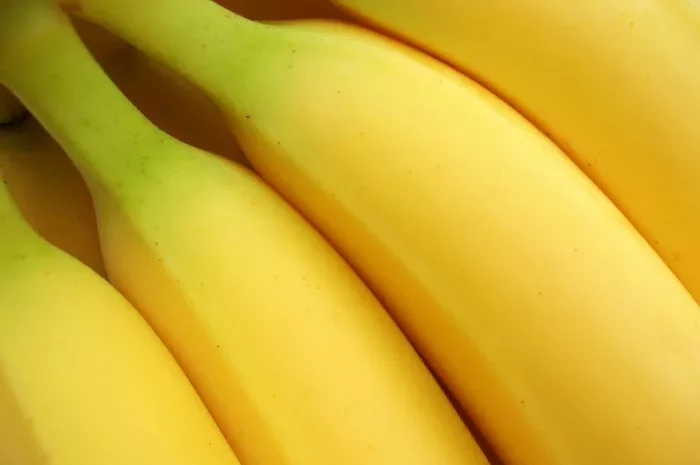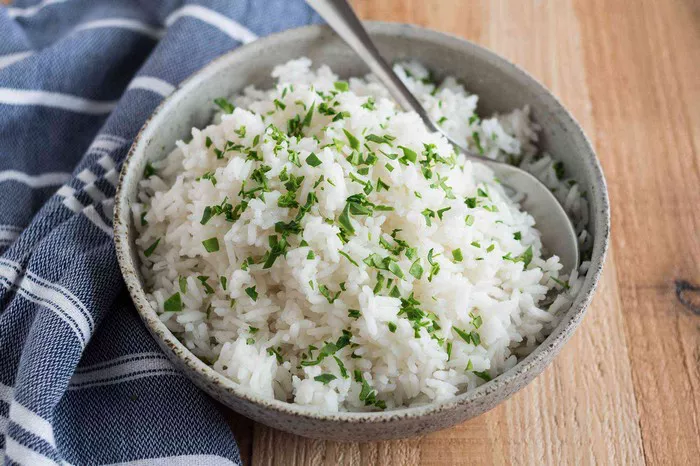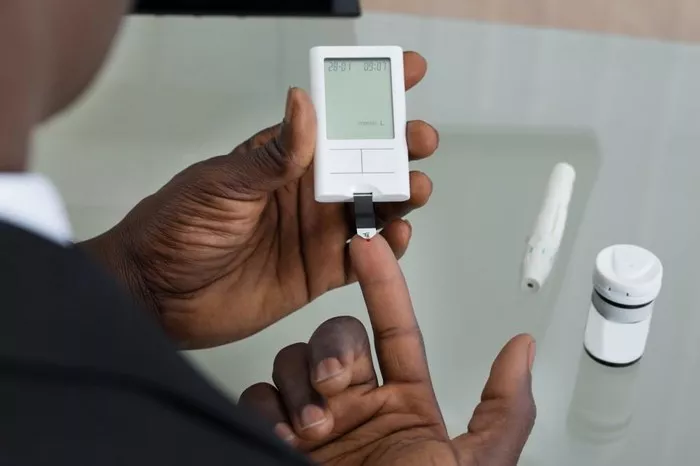Diabetes is a chronic condition characterized by high blood sugar levels due to the body’s inability to produce enough insulin or effectively use the insulin it produces. Diet plays a crucial role in managing diabetes, and understanding which foods are beneficial or harmful is essential for effective management. One fruit that often sparks debate in diabetic dietary discussions is the banana. This article explores whether bananas are good for diabetics, delving into their nutritional profile, glycemic index, and impact on blood sugar levels, while providing practical guidelines for incorporating bananas into a diabetic diet.
Nutritional Profile of Bananas
Bananas are a rich source of essential nutrients, making them a popular choice for many health-conscious individuals. A medium-sized banana (about 118 grams) contains approximately:
- Calories: 105
- Carbohydrates: 27 grams
- Sugars: 14 grams
- Dietary Fiber: 3 grams
- Protein: 1 gram
- Fat: 0.3 grams
- Vitamin C: 10% of the Daily Value (DV)
- Vitamin B6: 20% of the DV
- Potassium: 12% of the DV
- Magnesium: 8% of the DV
Bananas are also rich in antioxidants and provide a small amount of other vitamins and minerals such as manganese, copper, and folate.
Glycemic Index and Glycemic Load
The Glycemic Index (GI) is a measure of how quickly a food raises blood sugar levels. Foods with a high GI cause a rapid increase in blood sugar, while those with a low GI result in a slower, more gradual rise. The GI of a banana varies depending on its ripeness. Green, unripe bananas have a GI of around 30-40, placing them in the low-GI category. As bananas ripen and their starch content converts to sugar, their GI increases to around 50-60, making ripe bananas a medium-GI food.
Glycemic Load (GL) is another important concept that takes into account both the GI and the carbohydrate content of a food serving. It provides a more accurate picture of a food’s impact on blood sugar levels. A medium banana has a GL of around 11, which is considered moderate. This indicates that while bananas can affect blood sugar levels, their impact is not as pronounced as high-GI foods like white bread or sugary snacks.
Impact on Blood Sugar Levels
For diabetics, managing blood sugar levels is a continuous balancing act. Consuming foods with a high carbohydrate content can lead to spikes in blood sugar, which need to be managed through diet, exercise, and medication. While bananas do contain carbohydrates, their fiber content helps moderate the release of sugar into the bloodstream. Fiber slows the digestion and absorption of carbohydrates, preventing rapid blood sugar spikes.
Moreover, bananas contain resistant starch, particularly when they are less ripe. Resistant starch functions similarly to dietary fiber, as it is not fully broken down and absorbed by the small intestine. Instead, it ferments in the large intestine, promoting healthy gut bacteria and potentially improving insulin sensitivity, which is beneficial for diabetics.
Health Benefits of Bananas for Diabetics
Rich in Nutrients
Bananas provide essential vitamins and minerals that are important for overall health. Vitamin B6, found in high amounts in bananas, plays a role in metabolism and cognitive development. Potassium, another key nutrient, helps regulate fluid balance, muscle contractions, and nerve signals. Adequate potassium intake is associated with lower blood pressure, which is crucial for diabetics as they are at increased risk of cardiovascular complications.
Fiber Content
The fiber content in bananas, particularly pectin and resistant starch, contributes to improved digestive health. Fiber not only helps in stabilizing blood sugar levels but also promotes satiety, which can aid in weight management—a critical aspect of diabetes management. Weight control is vital for diabetics, as excess body weight can exacerbate insulin resistance and make blood sugar control more difficult.
Antioxidant Properties
Bananas are a good source of antioxidants such as dopamine and vitamin C. Antioxidants help combat oxidative stress, which is elevated in diabetics and contributes to the development of complications such as cardiovascular disease, neuropathy, and retinopathy. By reducing oxidative stress, antioxidants play a protective role in maintaining overall health.
Potential Risks of Eating Bananas for Diabetics
Carbohydrate Content
The primary concern for diabetics consuming bananas is their carbohydrate content, which can impact blood sugar levels. Eating large portions or pairing bananas with other high-carb foods can lead to elevated blood sugar levels. It is important for diabetics to monitor their carbohydrate intake and consider the portion size of bananas within the context of their overall diet.
Ripeness
The ripeness of a banana significantly affects its GI. As bananas ripen, their starch content converts to simple sugars, increasing their GI and potential to raise blood sugar levels. Diabetics should be mindful of the ripeness of the bananas they consume and may benefit from choosing greener bananas to minimize blood sugar spikes.
Individual Variability
Each diabetic’s response to carbohydrates can vary. Factors such as age, activity level, medication regimen, and individual metabolism all influence how a person’s body handles carbohydrate intake. Therefore, it is essential for diabetics to monitor their blood sugar levels after consuming bananas to understand their unique response and adjust their diet accordingly.
Practical Tips for Including Bananas in a Diabetic Diet
Portion Control
Moderation is key when it comes to consuming bananas. A small banana or half of a larger banana can be a reasonable portion for diabetics. This approach allows for the enjoyment of the fruit’s nutritional benefits without causing significant spikes in blood sugar levels.
Pairing with Protein or Fat
Combining bananas with a source of protein or healthy fat can help slow the absorption of sugar into the bloodstream. For example, pairing a banana with a handful of nuts, a spoonful of nut butter, or a serving of Greek yogurt can provide a more balanced snack that mitigates the impact on blood sugar levels.
Timing of Consumption
The timing of banana consumption can also affect blood sugar management. Eating a banana as part of a balanced meal rather than on its own can help stabilize blood sugar levels. Including other low-GI foods, protein, and healthy fats in the meal can further moderate the blood sugar response.
Monitoring Blood Sugar Levels
Regular monitoring of blood sugar levels is essential for diabetics to understand how different foods affect their condition. Keeping a food diary and noting blood sugar readings before and after eating bananas can provide valuable insights and help in making informed dietary choices.
Alternative Fruits for Diabetics
While bananas can be included in a diabetic diet with careful planning, other fruits with lower GI values may be better suited for some individuals. These fruits include:
Berries: Strawberries, blueberries, raspberries, and blackberries have low GI values and are high in fiber and antioxidants.
Apples: Apples have a moderate GI and are rich in fiber, particularly when consumed with the skin.
Pears: Pears have a low to moderate GI and provide fiber and essential nutrients.
Cherries: Cherries have a low GI and are packed with antioxidants and anti-inflammatory compounds.
Oranges: Oranges and other citrus fruits have a low to moderate GI and are high in vitamin C and fiber.
Conclusion
Bananas can be a part of a diabetic diet when consumed in moderation and with careful consideration of their ripeness and portion size. Their nutritional benefits, including fiber, vitamins, minerals, and antioxidants, make them a valuable addition to a balanced diet. However, diabetics must be mindful of their carbohydrate content and individual response to bananas. By pairing bananas with protein or healthy fats, monitoring blood sugar levels, and considering alternative low-GI fruits, diabetics can enjoy the health benefits of bananas without compromising their blood sugar control. As with any dietary decision, it is advisable for diabetics to consult with their healthcare provider or a registered dietitian to tailor their diet to their specific needs and health goals.
Related topics:
Why Is It Important To Eat Healthy And Exercise
























